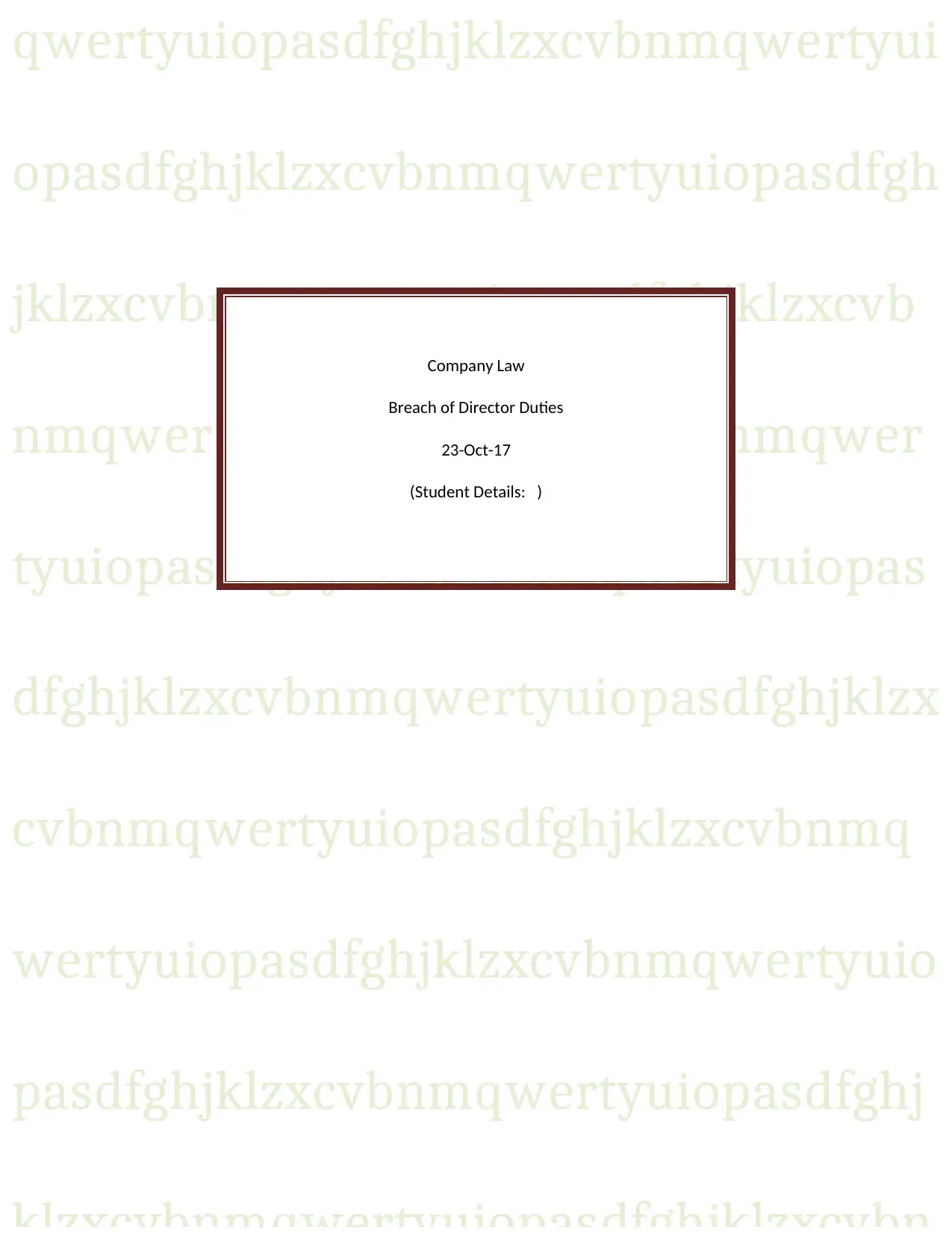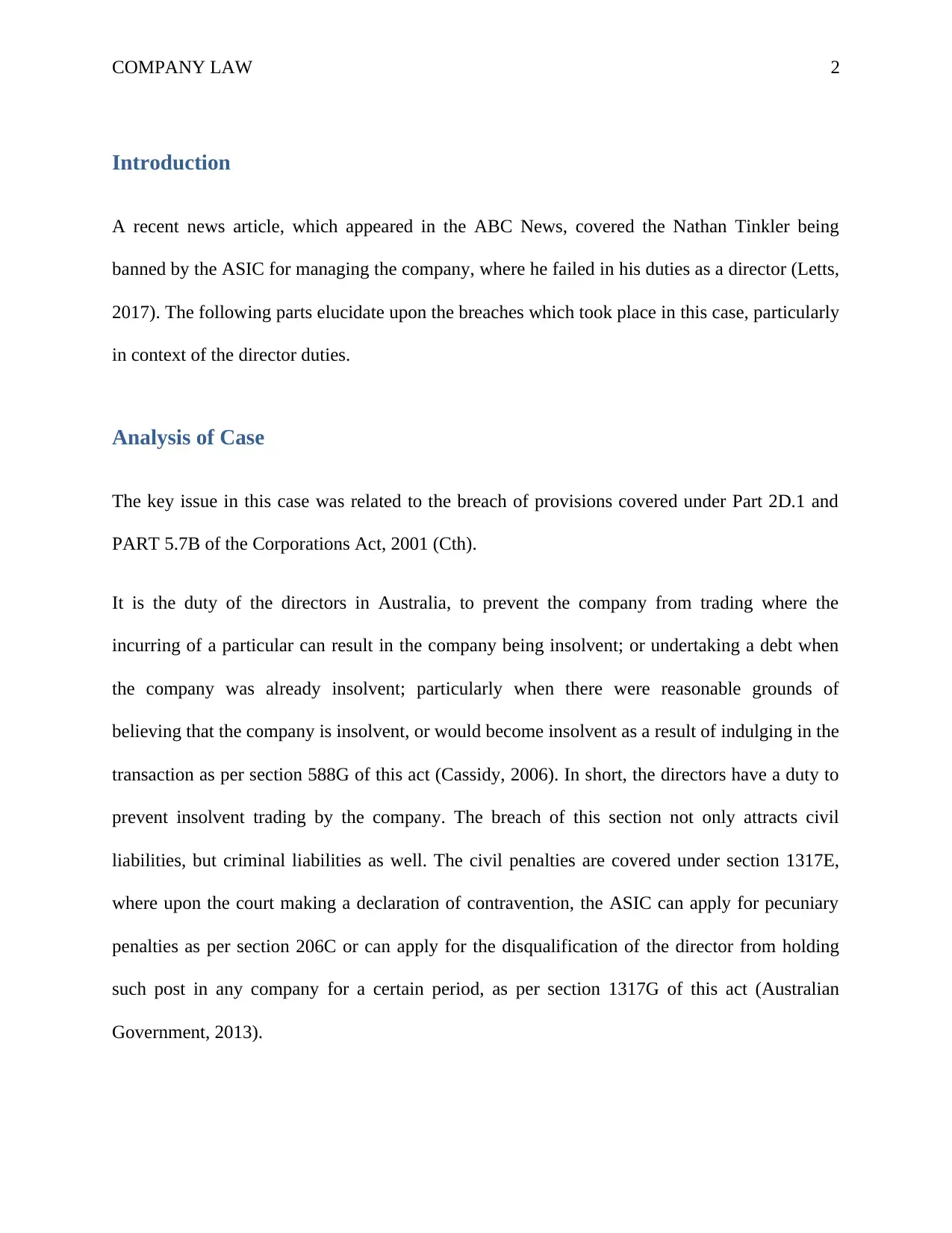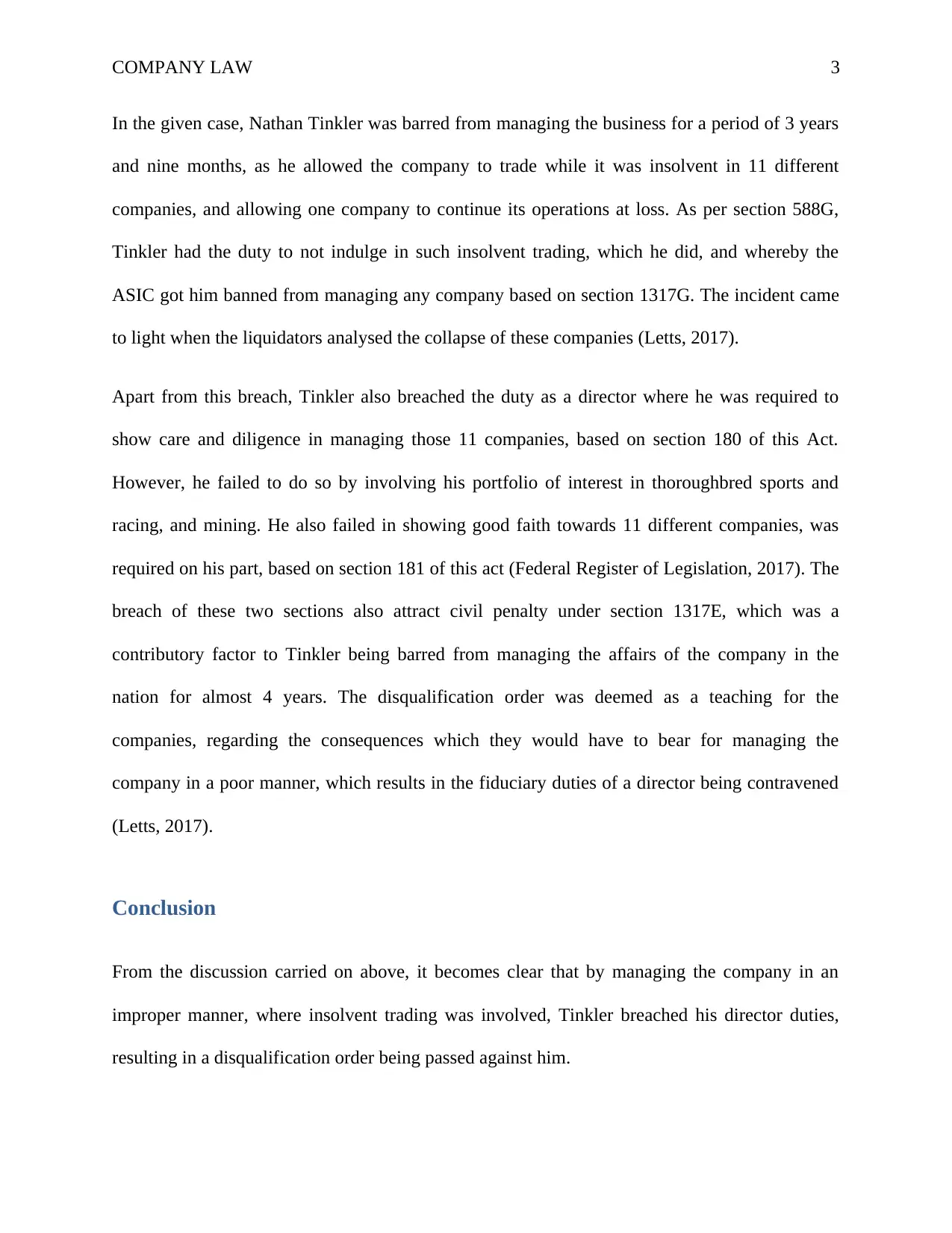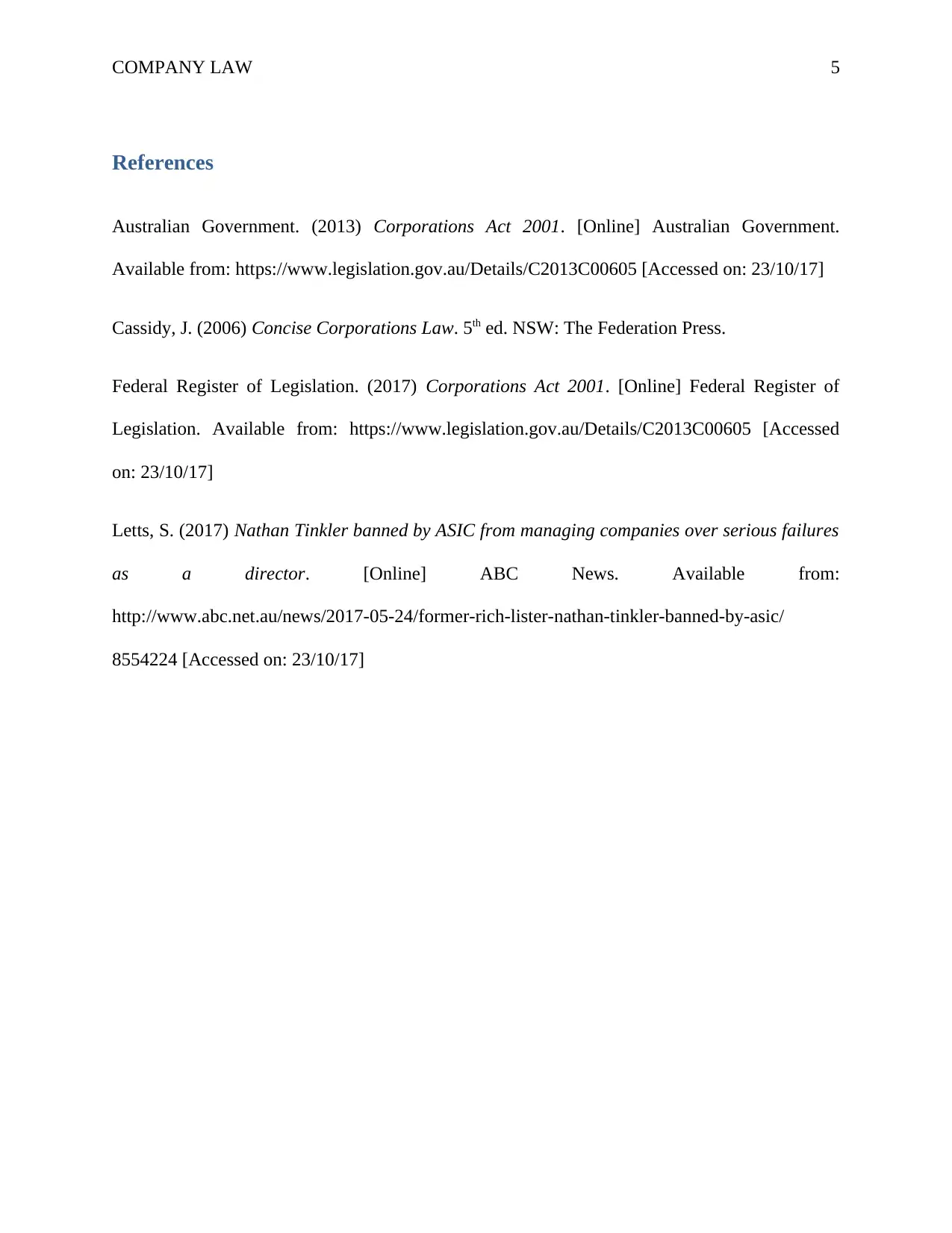Company Law: Analysis of Director Duty Breaches in a Case Study
VerifiedAdded on 2020/05/04
|5
|738
|40
Report
AI Summary
This report examines a case involving Nathan Tinkler and his breaches of director duties under the Corporations Act 2001. The analysis focuses on Tinkler's failure to prevent insolvent trading in multiple companies and his lack of care and diligence. The report highlights the consequences of these breaches, including a ban from managing companies for almost four years. The case study references relevant sections of the Corporations Act, such as sections 180, 181, and 588G, as well as the civil and potential criminal liabilities associated with these breaches. The report emphasizes the importance of directors fulfilling their fiduciary duties to prevent insolvent trading and act in good faith to avoid repercussions, as demonstrated by the ASIC's actions in this case. The conclusion reinforces the significance of responsible company management and the legal ramifications of director misconduct.
1 out of 5












![[object Object]](/_next/static/media/star-bottom.7253800d.svg)